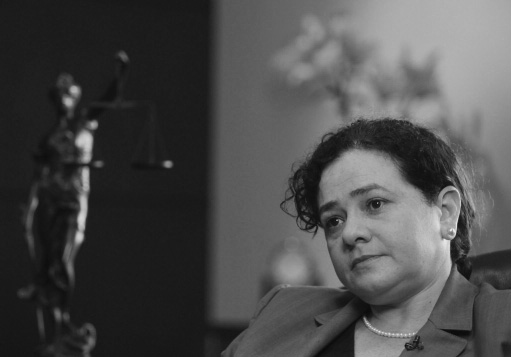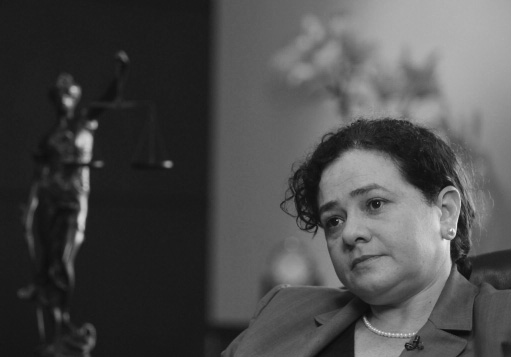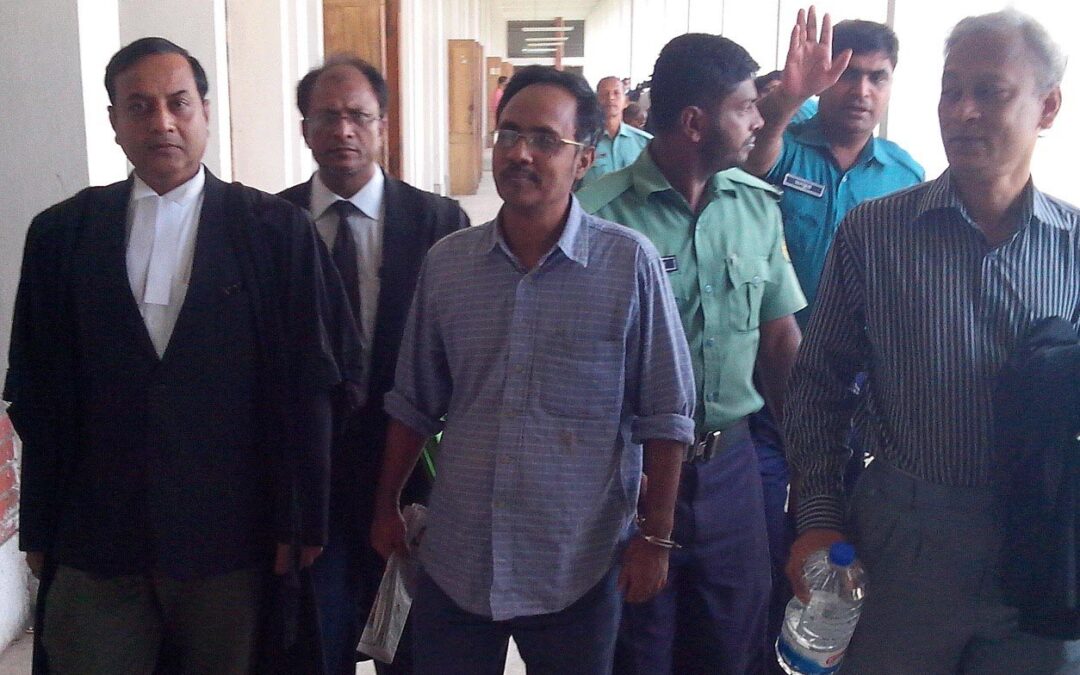
Feb 11, 2014 | News
The personal decision of Khil Raj Regmi to resign and not return to his post as Chief Justice safeguards the independence of the judiciary and maintains the rule of law in Nepal, the ICJ says.
Caretaker Council of Minister Chairman Khil Raj Regmi announced this afternoon that he would not return to his former post of Chief Justice after acting as the Chairman of the Council of Ministers since March 2013.
“Khil Raj Regmi’s decision is one that will help to preserve the Supreme Court’s hard-earned reputation as an independent institution,” said Ben Schonveld, ICJ’s South Asia Regional Director.
International standards, including the International Covenant on Civil and Political Rights (ICCPR) and the UN Basic Principles on the Independence of the Judiciary, clarify that all governmental officials and institutions as well as judges must respect and preserve the independence and integrity of the judiciary.
The 2007 Interim Constitution of Nepal enshrines guarantees for the independence of the judiciary and contains safeguards for the separation of executive, legislative and judicial powers.
Article 106 of the 2007 Interim Constitution explicitly bans sitting and retired judges from assuming any appointment in government service apart from a role in the national human rights commission.
To enable former Chief Justice Regmi to act as caretaker Prime Minister, the President amended several provisions of the Interim Constitution, including Article 106.
These amendments were made in contravention of the Constitution, which required a two-thirds majority of a sitting Parliament.
“The return of Khil Raj Regmi to the post of Chief Justice would have significantly undermined the appearance of independence of the Supreme Court and the judiciary as a whole,” Schonveld added.
The Bangalore Principles of Judicial Conduct clarify that judges must not only be free from any inappropriate connections with the executive and legislative branches of government but also must appear to a reasonable observer to be free therefrom.
The ICJ applauds the personal decision of Chairman Khil Raj Regmi to resign as Chief Justice.
The ICJ calls on the new Government under the leadership of the Nepali Congress Chairperson, Sushil Koirala as well as the other elected political parties of the Constituent Assembly to honour the commitments made during the election and work to end impunity for gross violations of human rights.
Contact:
Ben Schonveld, ICJ South Asia Director, (Kathmandu); t: 977 9804596661; email: ben.schonveld(a)icj.org
Govinda Bandi Sharma, ICJ Senior Legal Adviser, Nepal (Kathmandu), t: +977 9851061167; email: govinda.sharma(a)icj.org
Sheila Varadan, ICJ Legal Adviser, South Asia Programme (Bangkok), t: +66 857200723; email: sheila.varadan(a)icj.org

Feb 7, 2014 | Artículos, Noticias
La actual Fiscal General y Jefa del Ministerio Público, Claudia Paz y Paz, fue nombrada el 10 de diciembre de 2010 para dirigir la institución por un período de 4 años, que legalmente vence el 9 de diciembre de 2014.
Su nombramiento ocurrió, hasta dicha fecha, como resultado de la repetición del proceso de selección debido a acusaciones que cuestionaban la honorabilidad e idoneidad de la persona previamente electa.
La actual Fiscal General y Jefa del Ministerio Público se ha constituido por sus resultados de gestión ante el Ministerio Público, como una figura democrática e independiente que ha realizado una importante labor en la protección y defensa de derechos humanos y en el desmantelamiento de estructuras criminales importantes. Esta figura contraviene los intereses de oscuros grupos que buscan interrumpir la continuidad del trabajo de la Fiscal.
Por ello, un abogado, ha puesto en marcha acciones jurídicas promoviendo que la Corte de Constitucionalidad acceda a reducir el período de gestión de la actual Fiscal.
El 05 de febrero del presente año, la Corte de Constitucionalidad emitió una resolución en que concede un amparo provisional y ordena al Congreso de la República convocar a la conformación de un nuevo proceso de elección para cambio de Fiscal General.
De confirmarse este amparo provisional por parte de la Corte de Constitucionalidad, se tendría como resultado que la fiscal sea removida de su cargo y se estaría violentando el Estado de Derecho.
Guatemala-Commuicado en defensa del estado de derecho-news-web story-2014-spa (full text in pdf)
Foto: ICTJ

Feb 7, 2014 | News
La actual Fiscal General y Jefa del Ministerio Público, Claudia Paz y Paz, fue nombrada el 10 de diciembre de 2010 para dirigir la institución por un período de 4 años, que legalmente vence el 9 de diciembre de 2014.
Su nombramiento ocurrió, hasta dicha fecha, como resultado de la repetición del proceso de selección debido a acusaciones que cuestionaban la honorabilidad e idoneidad de la persona previamente electa.
La actual Fiscal General y Jefa del Ministerio Público se ha constituido por sus resultados de gestión ante el Ministerio Público, como una figura democrática e independiente que ha realizado una importante labor en la protección y defensa de derechos humanos y en el desmantelamiento de estructuras criminales importantes. Esta figura contraviene los intereses de oscuros grupos que buscan interrumpir la continuidad del trabajo de la Fiscal.
Por ello, un abogado, ha puesto en marcha acciones jurídicas promoviendo que la Corte de Constitucionalidad acceda a reducir el período de gestión de la actual Fiscal.
El 05 de febrero del presente año, la Corte de Constitucionalidad emitió una resolución en que concede un amparo provisional y ordena al Congreso de la República convocar a la conformación de un nuevo proceso de elección para cambio de Fiscal General.
De confirmarse este amparo provisional por parte de la Corte de Constitucionalidad, se tendría como resultado que la fiscal sea removida de su cargo y se estaría violentando el Estado de Derecho.
Guatemala-Commuicado en defensa del estado de derecho-news-web story-2014-spa (full text in pdf)
Photo credit: ICTJ

Feb 7, 2014 | News
Bangladesh authorities must immediately cease their harassment of Adilur Rahman Khan, Secretary of Odhikar, a prominent human rights organization and ICJ affiliate, and members of his family, the ICJ said today.
On 5 February 2014, Odhikar reported that two officers of the Special Branch of Police followed a member of Adilur Rahman Khan’s family from his home. When he realized he was being followed he decided to return home. The security officers continued to follow him, and parked their motorcycle next to his house.
Odhikar previously reported that security forces monitor its Dhaka offices as well as Adilur Rahman Khan, his family and other staff. In August 2013, security forces raided Odhikar’s office, confiscating computers containing potentially sensitive material such as the identities of witnesses.
“These actions are deliberate acts of intimidation against Odhikar, its staff and their families, designed to silence the legitimate actions of human rights defenders,” said Ben Schonveld, the ICJ’s Asia Director.
Article 12 of the United Nations Declaration on the Right and Responsibility of Individuals, Groups, and Organs of Society to Promote and Protect Universally Recognized Human Rights and Fundamental Freedoms (Declaration on Human Rights Defenders), clarifies that States must take all necessary measures to ensure the protection of human rights defenders from any violence, threat, retaliation, pressure, or any other arbitrary action as a consequence of the legitimate exercise of rights, including the freedom of expression.
Background:
Adilur Rahman Khan and Nasiruddin Elan, Secretary and Director of Odhikar, have been charged under section 57 of the Information and Communication Technology (ICT) Act, 2006, for publishing a report on the Government crackdown on a Hefazat-e-Islam rally in May 2013. The report alleged that 61 people were killed in the protest; the Government disputes the number of casualties. Rahman and Khan were indicted on 8 January 2014 and are both currently on bail.
Contact:
Ben Schonveld, ICJ South Asia Director (Kathmandu), t: +977 14432651; email: ben.schonveld(a)icj.org
Reema Omer, ICJ International Legal Advisor (London), t: +447889565691; email: reema.omer(a)icj.org

Feb 6, 2014 | News
The ICJ calls on the Government of Malaysia to stop the execution of death row prisoner Chandran, apparently scheduled to take place on Friday 7 February.
Chandran was convicted for murder and sentenced to death on 16 April 2008.
While the Government of Malaysia has not publicly released the date, according to the Malaysian Bar Council, his execution is planned to take place on 7 February 2014.
Despite the prohibition of mandatory death sentences under international human rights law, the laws in Malaysia maintain the mandatory death sentence for offences such as murder, treason and drug trafficking.
The Malaysian Bar Council, a partner organization of the ICJ, has noted that there have been several instances in the past when the Government of Malaysia indicated that it would review the mandatory death penalty, with a view to its possible abolition or the possible reintroduction of a discretionary death penalty. It has also indicated its intention of reviewing the penalty of death for drug-related offenses.
“Considering prohibition of the mandatory death penalty in international human rights law and the past indications made by the Government of Malaysia that it intends to review the imposition of mandatory death penalty, it is deeply concerning that it still aims to proceed with the execution of Chandran on Friday,” said Sam Zarifi, ICJ Regional Director for Asia and the Pacific.
In October 2013, Malaysia underwent their second Universal Periodic Review where it was urged by several countries to review the mandatory nature of death penalty, maintain a moratorium, and ultimately move to abolish the death penalty.
Malaysia is set to respond to these recommendations in March 2014.
The Malaysian Bar Council estimates that there are approximately 900 prisoners in death row in Malaysia awaiting execution.
The ICJ considers that the use of the death penalty constitutes a violation of the right to life and the right not to be subjected to cruel, inhuman or degrading punishment.
In addition to calling a halt to the execution of Chandran, the ICJ urges the Government of Malaysia to amend its laws and take steps towards the abolition of the death penalty in the country, including the implementation of a moratorium.
Contact:
Emerlynne Gil, ICJ International Legal Adviser for Southeast Asia, t +66 2 619 8477; email: emerlynne.gil(a)icj.org
Craig Knowles, ICJ Media Consultant, t +66 81 9077653; email: craig.knowles(a)icj.org









